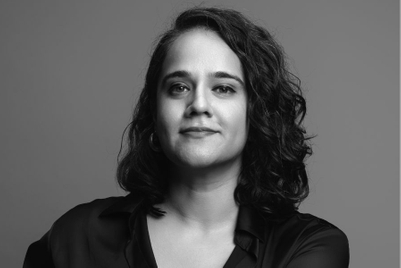
SINGAPORE - Brands should forget the notion of big data until they are effectively using the small data they already have to create highly engaging and sharable content.
That was the key takeaway from PropertyGuru’s CMO Bjorn Sprengers at the opening session of Campaign Asia-Pacific’s first DMA (Data | Marketing | Analytics) conference in Singapore this morning.
In his keynote presentation, Sprengers said: “It is not about being an expert in all fields of marketing, but understanding how to connect them and what role data can play."
“We are not the ultimate leader in data science, but we are very good at joining the dots," he said. "The opportunity for marketers in the short term is small data. If you do not use the opportunities you already have with the data that’s all around you, you don’t need 'big data'. From a brand perspective, you already have a big arsenal of tools.”
PropertyGuru is the market-leading property listing and content site in Southeast Asia, but Sprengers said it faced similar challenges to all other brands in the region; namely that the ROI from traditional advertising is falling, the use of ad blocking is rising and the demand for quality content is high.
This has led PropertyGuru to focus on data journalism—“the love child of data and content”—to create content on the future direction of the property market in Singapore.
“For us, data journalism is very important," he said. "It’s the art of creating stories out of data and it is very exciting. There are many examples of it, such as The Wall Street Journal looking at the power of vaccines...that came from data. More importantly for a marketer, you can create high-value content with the data, because only you have that data. It builds you a lot of authority.
“At PropertyGuru in Singapore we have used this to try and predict where the market is going, and we have been quite successful with this and have created a lot of value for our customers.”
If marketers take one insight from his talk, he said, they should remember that the immediate opportunity is not in big data, but small data.

In the following panel discussion, Lazada’s SVP of data science, John Berns said people don’t always have a lot of trust in big data at present; they still prefer to trust their gut instinct and past experiences to decide what customers want.
“Stakeholders often think they know what customers want best, but they tend to overdo it in their ability to understand the audience.
“We have the ability to offer some finely segmented data for email campaigns, but it can take people a long time to adopt that," Berns said. "We are working to scale that up because when we did it on a small basis, we had a 15 percent uplift on the responses to those emails.”
But Basker Rangachari, CEO of Zafin, warned that the creative and content costs around finely segmented email campaigns can outweigh the benefits.
“When we can use machine learning to do this, then it will work," he said. "When this kicks in and gets more intelligent, the cost per unit of communication hits the floor. Until then, I have a job.”
We’ll have more coverage from the DMA conference tomorrow.


.jpg&h=334&w=500&q=100&v=20250320&c=1)

.jpg&h=334&w=500&q=100&v=20250320&c=1)
+(1).jpg&h=334&w=500&q=100&v=20250320&c=1)

.jpg&h=334&w=500&q=100&v=20250320&c=1)



.jpg&h=334&w=500&q=100&v=20250320&c=1)




.jpg&h=268&w=401&q=100&v=20250320&c=1)


